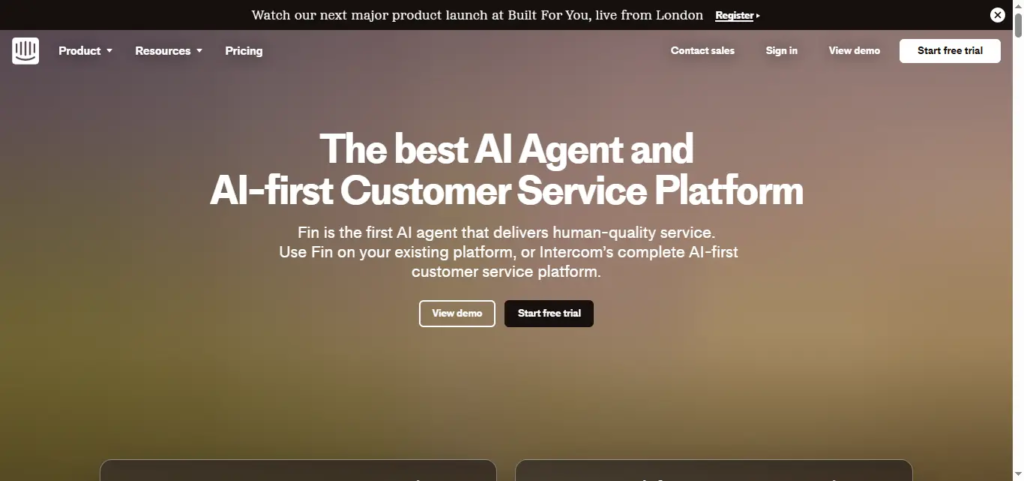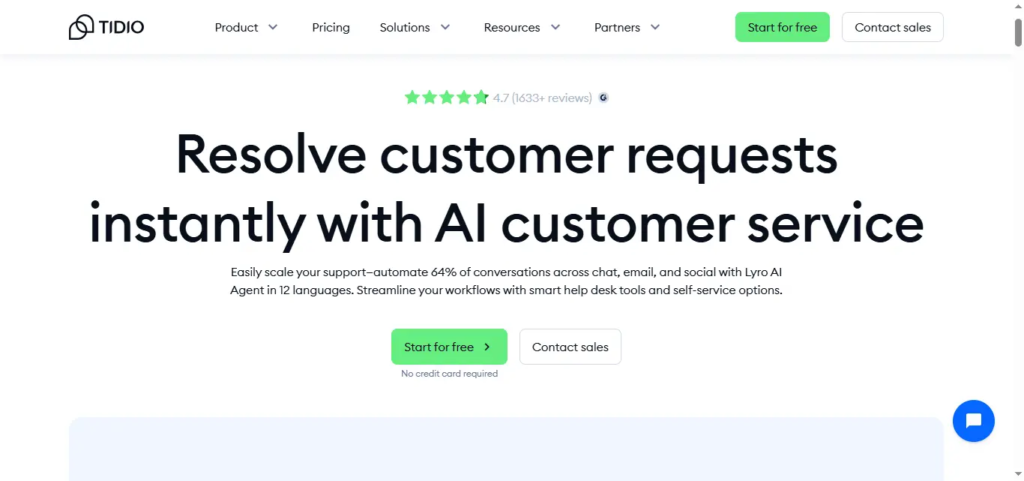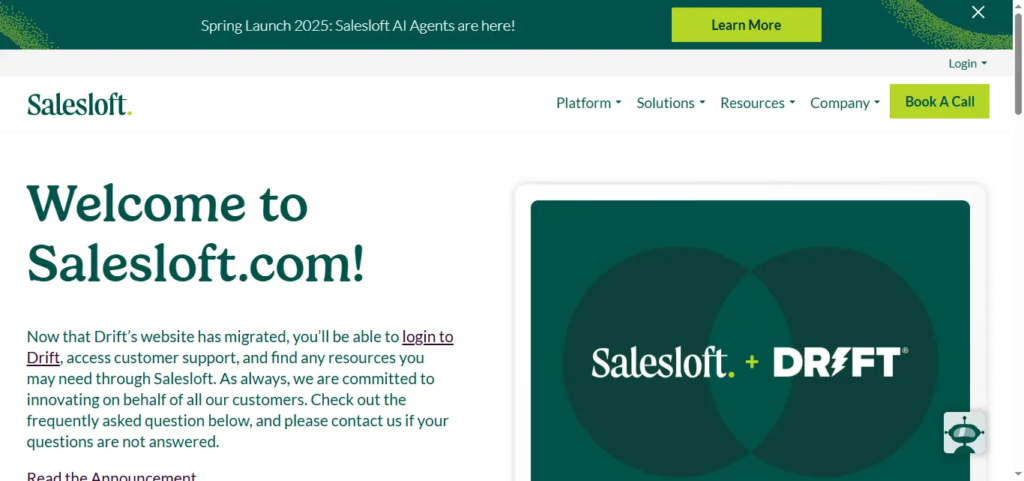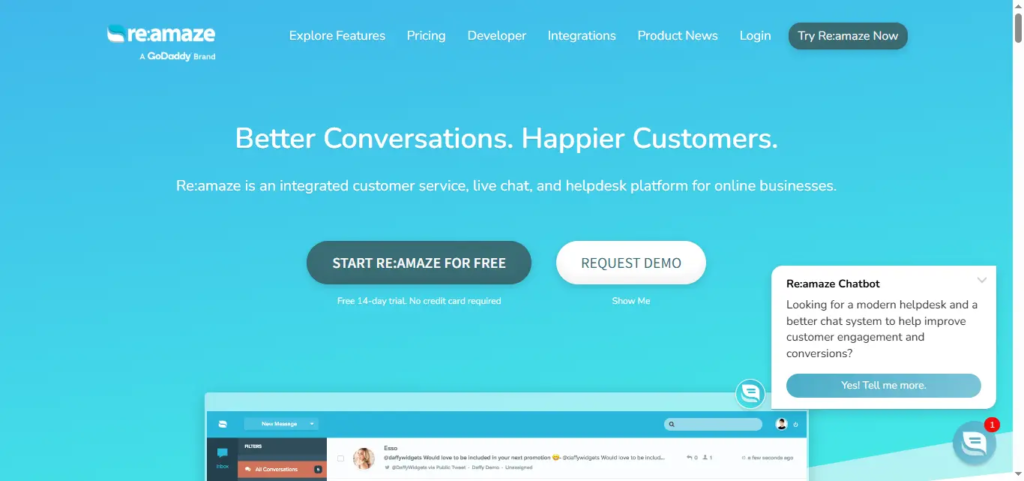Still answering every support ticket manually? That’s not scalable.
- AI Tools For Automating Customer Support
- 1. Intercom
- 2. Zendesk AI
- 3. Tidio
- 4. Freshdesk Freddy AI
- 5. ChatGPT (OpenAI)
- 6. Ada
- 7. Drift
- 8. Forethought
- 9. Re:amaze
- 10. Help Scout + AI Assistant
- How to Pick the Right AI Tool
- Tips for a Smooth AI Transition
- Avoid These Mistakes
- Final Thoughts: AI Makes Support Smarter—Not Colder
Customers expect fast replies, 24/7 availability, and zero frustration.
But hiring more agents isn’t always the answer.
The right tools can handle FAQs, route tickets, and even solve problems—before a human gets involved.
That means lower costs, happier customers, and more time for your team to focus on what actually needs a human touch.
In this guide, I’m breaking down 10 AI tools for automating customer support without sounding robotic.
You’ll see what each one does, who it’s best for, and why it matters.
Let’s get into it.
AI Tools For Automating Customer Support
1. Intercom

Smart support that scales with you.
Intercom uses AI to chat with customers, suggest answers, and route conversations—automatically.
It handles volume without losing the human feel.
Why it matters:
• AI chatbot that actually sounds natural
• Routes tickets to the right person or self-serve article
• Works across chat, email, and social
Best for:
Startups, SaaS teams, and fast-growing support teams that need scale without chaos.
2. Zendesk AI
AI built into a world-class helpdesk.
Zendesk’s AI handles tagging, routing, and even suggesting replies—so your agents don’t have to.
It learns from every ticket and gets better over time.
Why it matters:
• Auto-triages incoming tickets
• Suggests the best responses instantly
• Built for complex, multi-channel support
Best for:
Enterprises, busy support teams, and anyone scaling past human speed.
3. Tidio

Live chat + chatbot in one sleek package.
Tidio gives you a real-time chat tool with a built-in AI bot.
It talks to customers, answers FAQs, and even helps convert visitors to leads.
Why it matters:
• AI chatbot handles 70% of basic questions
• Easy setup with Shopify, WordPress, and others
• Multilingual support included
Best for:
Small businesses, online stores, and solopreneurs who want automation without complexity.
4. Freshdesk Freddy AI
Your virtual support assistant.
Freddy automates repetitive tickets, suggests knowledge base links, and flags urgent messages.
It works quietly in the background to make agents faster.
Why it matters:
• Speeds up first-response time
• Learns from your helpdesk history
• Tight integration with Freshdesk workflows
Best for:
Teams already using Freshdesk who want smarter, faster replies.
5. ChatGPT (OpenAI)
Custom AI brain for your support.
Build your own support assistant with ChatGPT. It can pull from your knowledge base, draft email replies, or chat directly with users.
Why it matters:
• Can be trained on your help docs
• Flexible—works via API, widgets, or plugins
• Responds like a human, scales like a machine
Best for:
Tech-savvy teams, startups, or anyone building a custom support flow.
6. Ada
No-code chatbot built for scale.
Ada lets you build powerful chatbots without writing code.
It handles FAQs, product questions, and account help—24/7.
Why it matters:
• Drag-and-drop builder
• Integrates with Zendesk, Salesforce, and more
• Enterprise-grade automation, no devs needed
Best for:
Large support teams, fast-scaling companies, global brands.
7. Drift

Support meets sales in one AI chat.
Drift’s chatbot handles pre-sales support—answering pricing questions, booking calls, and routing serious buyers to your team.
Why it matters:
• Qualifies leads and answers FAQs
• Keeps your sales team focused
• Speeds up deal cycles
Best for:
B2B companies, SaaS products, sales-driven businesses.
8. Forethought
AI that solves tickets before they’re read.
Forethought predicts what a ticket’s about and solves it using past data, help docs, or AI-generated answers.
It’s like an agent that never stops learning.
Why it matters:
• Reduces ticket volume with smart deflection
• Suggests top responses to agents
• Gets better with every customer touch
Best for:
Support-heavy companies, large teams, and high-ticket volumes.
9. Re:amaze

All-in-one inbox with smart automation.
Re:amaze brings email, live chat, and social messages into one view—with AI workflows to auto-reply, tag, and escalate.
Why it matters:
• Unified inbox = no context-switching
• Chatbots, canned replies, and triggers built in
• Great Shopify integration
Best for:
Ecommerce brands, agencies, small support teams that multitask.
10. Help Scout + AI Assistant
Simple helpdesk with smart AI built in.
Help Scout now includes generative AI that drafts responses, summarizes conversations, and keeps your tone on-brand.
Why it matters:
• Write faster replies
• Clean, human-first interface
• Works across email, docs, and live chat
Best for:
Customer-first teams who want automation without losing their personal touch.
How to Pick the Right AI Tool
Don’t get overwhelmed—focus on what you need:
• High volume? Go for Zendesk, Forethought, or Ada
• Solo or small team? Try Tidio, Re:amaze, or ChatGPT
• Want something plug-and-play? Look at Intercom or Help Scout
Start with one. See the results. Then scale.
Tips for a Smooth AI Transition
• Automate one use case at a time (like FAQs or routing)
• Keep a human fallback for complex or emotional issues
• Review AI responses regularly for tone + accuracy
• Train your team to step in when needed
Avoid These Mistakes
• Over-automating: Not every problem needs a bot
• Ignoring feedback: Customers will tell you if the bot sucks
• One-size-fits-all bots: Personalization matters
• No backup plan: Always have a human in the loop
Final Thoughts: AI Makes Support Smarter—Not Colder
AI won’t replace great support teams. It gives them superpowers.
The best time to start automating? Yesterday.
The next best time? Today.
Pick a tool, test it, and watch your support run smoother, faster, and smarter.

















